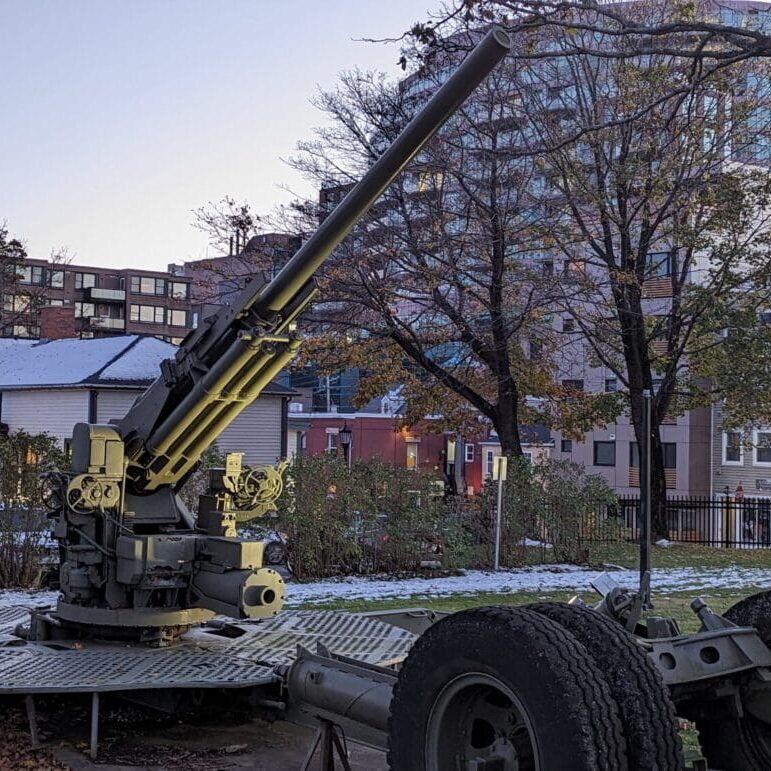
I’m not an economist, or a doctor for that matter. But I have a vested interest in the Canadian military’s budget. Said budget has been cut by a billion dollars, a big, scary number. What does that mean?
I suspect not a whole lot, unfortunately. The Canadian Armed Forces (CAF) have a storied history. Arguably, it was the actions of Canadian soldiers that cemented the foundation of the Canadian nation. Canadian action at Vimy Ridge, during the Dieppe Raid, and the liberation of the Netherlands all helped to solidify the idea of a Canadian nation. Canadian soldiers also compete (and win) on the world stage in soldiering competitions; the current longest sniper shot belongs to a Canadian.
The Canadian Armed Forces have also been mired in controversy and training deficits in recent years. Canadian soldiers put up with a culture of misogyny and sexual assault, extremely outdated equipment and (perhaps thankfully?) a lack of uses for these degrading weapons in the first place.
The military isn’t up to much
At this moment, I will concede that the military is, right now, a defensive tool. It is there to meet minimum NATO standards, which it fails to do anyways, and perform the occasional ceremony.
The armed capacity of the Canadian Armed Forces is its lowest priority. We’re not fighting a hot war, thank goodness. I know the war is coming, blah blah blah. Here’s the thing that Canadians like to forget: If we get invaded and the opposing force can secure a beachhead, the United States is there. Whether or not we agree, the United States will shut that beachhead immediately, if not before it’s even created.
I’m not suggesting that we entirely forgo our fighting capability, instead I’m suggesting that Canada lacks the capacity to have a military like the United States. If we want to even attempt to reach that, I suspect that it will take tens of billions of dollars, tremendous sustained political will and at least a decade. That’s to become even seriously comparable.
We might, just maybe, have the time, but we don’t have the money or political will. That billion is the last death sigh of the CAF that entered Afghanistan. I’m not going to say that the humanitarian mission succeeded, or anything of that nature, but it is undeniable that the soldiers actually doing the fighting were extraordinarily effective. Especially when the lack of supporting infrastructure is considered.
The CAF could shift to a radically different and possibly more important role.
A shift in focus to domestic operations could be effective. Canada’s cyclical natural disasters have only risen in intensity over the past decade. The old adage is true, militaries can only ever prepare for the last war. Ten years ago, nobody would have suggested that the CAF drops all its cool toys to instead help with flooding and hurricanes, but that has happened.
Thankfully, there’s already a good foundation to facilitate this shift. Young reservists can generally count on deploying in their first few years in a domestic capacity. COVID-19, storms and fires have all been addressed by reservists. The reserve system’s purpose is to augment the regular force. The reserves act as a buffer between the highly trained, but small, regular force that can expand the CAF’s capacity before general mobilization.
The regular force has highly trained, deadly, professional soldiers. There is a high degree of professionalism in the ranks, do not misunderstand me, but these are also the people who have signed up to basically surrender their life to the military. These soldiers want to do the job, maybe not every single one, but a vast majority want to do real soldiering.
The reservists are less committed. They want to maintain a life outside of the military, enlisting in a part-time capacity. The military is a perfect organization to augment emergency response forces. Firefighters need someone to fill water tanks in B.C. wildfires? A reservist needs tuition money. Nurses need someone to enter data into national healthcare records? A reservist can type and generally assist with everything besides giving the actual vaccine. Hurricane in the Maritimes? Reservists can make camp anywhere and clear debris. The CAF has already been mobilized at home and abroad in similar capacities.
Like Canada’s aircraft carriers, perhaps the age of Canada’s tanks has ended. Our military should fully realize that, inevitably, they need to let the pride go and help Canadians. Expand the coast guard’s search and rescue capacity and the army reserve’s capacity to assist in natural disaster recovery.






